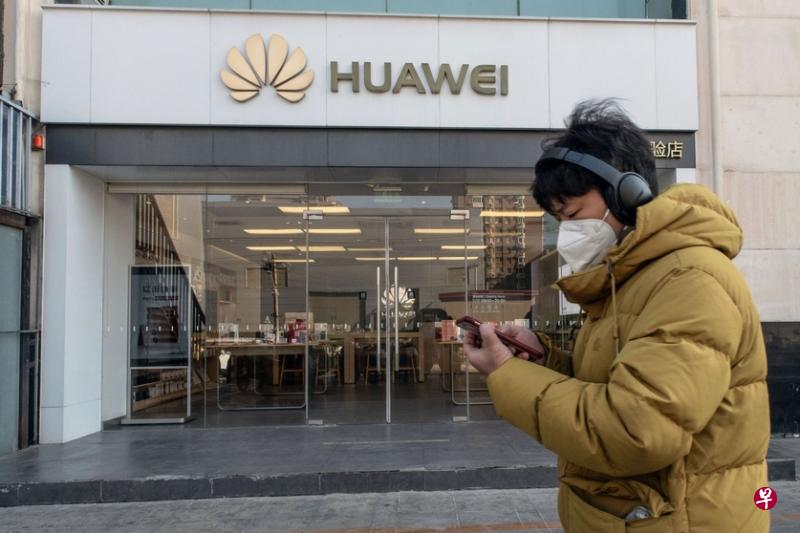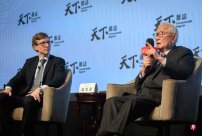
Comprehensive Reuters and Bloomberg reports that US officials are formulating formal policies that do not supply Huawei, including products under 5G levels, such as 4G equipment, WIFI6 and WiFi7, artificial intelligence, and artificial intelligence.As well as high -performance operations and cloud projects.
The U.S. government has rumored to have ordered the suspension of the supply permit for the export of US companies to China Telecom Equipment Corporation, which means that the United States may completely cut off Huawei's US supply sources.In addition, there have been recent news that the United States and Japan and the Netherlands have exported an agreement on the export of the manufacturing equipment to restrict some advanced chips (Chinese chips) to China. Scholars analyzed that although China and the United States intended to maintain communication, the scientific and technological war was still ongoing.
Comprehensive Reuters and Bloomberg reported on January 30 that U.S. officials are formulating formal policies that do not supply Huawei, including products under 5G levels, such as 4G devices, WIFI6 and WIFI7, artificial intelligence, high performance operations and high performance operations and high performance operations and high performance operations and high performance operations and high performance operations and high performance operations.Cloud project.
The British Financial Times quoted sources as saying that the ban will include prohibit Intel and Qualcomm supply to Huawei.However, the report said that the relevant discussions are still in the preliminary stage, and it is estimated that in May, that is, Huawei was included in the third -year decision of the entity list.
In 2019, the United States included Huawei in the list of trade entities, and it is forbidden to transport goods and technologies to Huawei to Huawei. Only Huawei obtains some of the products used for 4G equipment.During this period, the US Department of Commerce continued to issue a license to some Huawei suppliers, for example, Qualcomm obtained a license in 2020, selling 4G smartphone chips to Huawei; from April to November 2021, Huawei's US supplier in HuaweiSelling 61 billion US dollars (S $ 80.1 billion) products and technology to Huawei.
Reuters quoted people familiar with the matter and pointed out that in this ban, 4G chips that may have been approved before are also listed.According to reports, the move may represent the United States to fully prohibit the sale of US technology to Huawei.
China expressed "serious concerns"
For the above news, a spokesman for the US Department of Commerce only said that they would continue to evaluate policies and regulations, but they did not comment on negotiations with specific companies.Chinese Foreign Ministry spokesman Mao Ning said at a regular press conference on Tuesday that China expressed "serious concerns" about reports.
In the face of US sanctions, Huawei has continued to reconstruct the semiconductor supply chain in recent years.Nikkei News reported in November last year that Huawei combined with many local governments invested and established, including the Jindujiji Body Circuit (JHICC), which was stagnant in the stagnant of the US sanctions, and Shenzhen Pengxinwei, which was established in 2021Provide technical support, hoping to create an independent manufacturing supply chain.Xu Zhijun, the chairman of Huawei's rotating chairman, also said on December 30 last year: "In 2022, we have successfully got rid of the crisis. The restrictions on the United States are now our new normal, and we are operating as usual."
Taiwan scholars: Key core technologies in mainland China still rely on imported chips
Liu Peizhen, director of the production and economic database of Taiwan Economic Research Institute, analyzed in an interview with Lianhe Morning Post that although Mainland China was relatively sound in the middle and low -level communications industry chains, high -level production and key core technologies have not yet made much progress.Relying on imported chips.
In addition, the Bayeng government made a comprehensive semiconductor export control measure last October last year.Bloomberg also reported last week that the United States, Japan and the Netherlands have reached an agreement on January 27 to restrict some advanced chip manufacturing equipment exports to China.One of the most noticeable is that the Dutch light carved giant ASML may have agreed to not sell the light carvigr DUV, which will not sell the manufacturing process chip to China, and is expected to slow down the pace of China's independent manufacturing chip.
Now that the United States has been considered to be fully blocked in the United States, Liu Peizhen believes that the Sino -US scientific and technological war continues, and under the constraints of the United States, it will not only cause some harm to Huawei's restart.There will be a big gap in the goal.
As for the influence of scientific and technological warfare on Sino -US relations, Lu Industry, director of the Foreignics Department of Taiwan Politburo, analyzed in the interview that the United States strengthened its export ban on Huawei and the restrictions on the export of chip exports in Lianhe Japan and Dutch.The advantage of the war is also testing the bottom line of Beijing.
However, Lu Industry also mentioned that US Secretary of State Brillings will visit Beijing in early February, which means that the two countries are still interested in maintaining the smooth communication channels. In addition, the United States is the host country of the Asia -Pacific Economic Cooperation (APEC) conference this year. I believe that in APECBefore the summit, Washington's trend of dealing with China will still maintain a certain stability.


